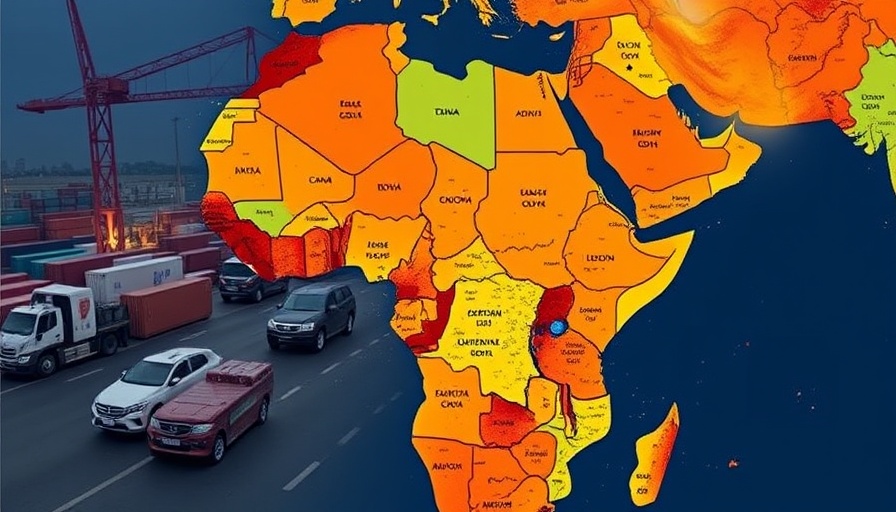
Intra-Africa Trade: A Transformative Surge
In a remarkable push towards economic resilience, intra-Africa trade has surged to a record $220 billion, signaling a revival among the continent's top economies. This growth highlights not only the potential of African nations to collaborate but also the increasing need for self-reliance in a post-pandemic world. The uptick in trade comes amidst efforts to bolster regional economic integration, with the African Continental Free Trade Area (AfCFTA) playing a crucial role in facilitating smoother trade flows across borders.
The Driving Forces Behind the Growth
Factors contributing to this significant increase include enhanced diplomatic relations, favorable trade policies, and an evolution in manufacturing capabilities across various countries. Powerhouse economies like Nigeria, South Africa, and Kenya are at the forefront of this trade renaissance, exploiting their industrial strengths to engage more effectively with their neighbors. Additionally, the global emphasis on value chain enhancement has encouraged African countries to prioritize local supply chains, further propelling intra-regional commerce.
Challenges and Opportunities Ahead
While the progress in trade figures is commendable, challenges persist. Infrastructure deficits, bureaucratic hurdles, and unstable regulatory environments continue to impede the seamless exchange of goods. Policymakers must prioritize infrastructure development and streamline trade processes to capitalize on this momentum. Moreover, looking to the future, African nations can seize this moment to establish stronger ties with global markets, particularly as relationships with economic giants like China and the European Union evolve. The need for a robust diplomatic approach cannot be overstated in this pursuit.
Conclusion: A Call to Action for Leaders
This surge in intra-African trade presents a pivotal opportunity for business leaders and policymakers to innovate and strengthen the continent's economic framework. Engaging in this dynamic landscape not only benefits individual nations but also enriches Africa's global standing. The time has come for decision-makers to align their strategies with the newfound momentum in trade, ensuring sustainable growth and development. Leaders are encouraged to take proactive measures to enhance trade agreements and foster partnerships that will drive the continent toward a prosperous future.
 Add Row
Add Row  Add
Add 


Write A Comment